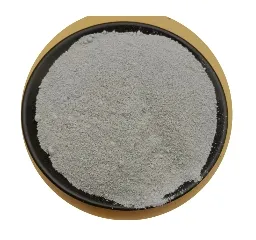
Chemical Products for Sale: Sourcing Safely from Trusted Chemical Factories
Chemicals are the backbone of nearly every industry — from agriculture, construction, and manufacturing to cosmetics, cleaning, and food processing. Whether you're sourcing raw materials or specialty compounds, finding the right chemical for sale means balancing price, purity, and compliance.

This guide covers the major chemical types, what to expect when working with a chemical factory, and how to ensure you're getting safe, certified chemical products for your business.
The Growing Demand for Chemical Products
From fertilizers and paints to food preservatives and water treatment agents, chemicals are part of everyday life. Global demand is growing rapidly due to industrial expansion, sustainability innovations, and increasing reliance on specialty chemical applications.
Whether you need a pallet of solvents or a container of surfactants, knowing the landscape helps you buy smarter.
Common Chemical Types
There are thousands of chemicals on the market, but most fall into these major categories:
|
Chemical Type |
Applications |
|
Industrial Chemicals |
Manufacturing, mining, plastics, coatings |
|
Agrochemicals |
Fertilizers, pesticides, herbicides |
|
Cleaning Chemicals |
Detergents, disinfectants, degreasers |
|
Food-Grade Chemicals |
Preservatives, stabilizers, sweeteners |
|
Cosmetic Chemicals |
Emulsifiers, surfactants, fragrances |
|
Textile Chemicals |
Dyes, bleaches, fixatives |
|
Construction Chemicals |
Waterproofing, sealants, admixtures |
|
Pharmaceutical Chemicals |
APIs (Active Pharmaceutical Ingredients), excipients |
|
Laboratory Chemicals |
Reagents, buffers, solvents for analysis |
When you browse a chemical for sale, it’s important to verify its grade: industrial, technical, food, or pharmaceutical — each with its own safety and purity requirements.
What Is a Chemical Factory?
A chemical factory is a facility where raw materials are processed into usable chemical compounds. These factories can range from large industrial plants producing tons of base chemicals to small specialty labs creating niche or high-purity formulations.
Key features of a modern chemical factory include:
ISO or GMP certification
Safety and environmental compliance (REACH, RoHS, EPA, etc.)
On-site labs for quality control
Custom formulation capabilities
Bulk production lines (from drums to IBCs or tankers)
If you’re buying large volumes or need a specific formula, working directly with a chemical factory often offers better pricing, transparency, and supply chain control.
How to Source the Right Chemical for Sale
Sourcing chemical products isn't the same as ordering office supplies. Here's a step-by-step sourcing approach:
1. Identify the Chemical Specification
Know the chemical name, CAS number, grade (technical/food/cosmetic/pharma), and packaging size.
2. Check Regulatory Requirements
Some chemicals require special handling, licenses, or cannot be shipped across borders.
3. Request COA and MSDS
Always ask for a Certificate of Analysis (COA) and Material Safety Data Sheet (MSDS) to verify quality and safety.
4. Inspect Factory Credentials
A reputable chemical factory should offer:
Third-party audits
Clear labeling and batch tracking
Export licenses and compliant packaging
Packaging & Delivery Options
Chemicals are typically sold and shipped in:
Small packs (500g–5kg for lab use or testing)
Drums (25kg, 50kg, 200L) — standard for mid-size orders
IBCs (Intermediate Bulk Containers) — ~1000L, ideal for liquids
Bulk tankers for industrial supply chains
Always verify the chemical’s compatibility with its container — some require lined drums, UN-approved packaging, or dry ice.
Safety and Compliance
Working with chemicals means ensuring regulatory compliance and safe storage:
Labeling in accordance with GHS or CLP regulations
Storage with proper temperature, ventilation, and separation from incompatible substances
Training for anyone handling chemicals on your team
Waste disposal in line with environmental standards
Most suppliers will provide SDS sheets and transport classifications (hazardous, flammable, corrosive, etc.).
Chemical Products FAQs
Q1: How do I find a reliable chemical factory?
A: Look for ISO-certified factories, third-party audited facilities, or suppliers with verified export experience and client references.
Q2: Can I buy a chemical for sale in small quantities?
A: Yes. Many suppliers offer sample sizes or lab-scale packs. However, pricing is higher per unit than bulk orders.
Q3: What’s the difference between technical grade and food grade?
A: Technical grade is for industrial use and may contain more impurities. Food grade meets strict purity and safety standards for human consumption.
Q4: Can I customize a chemical formula?
A: Yes. Many chemical factories offer custom synthesis or modification services, depending on your volume and technical requirements.
Q5: How do I know if a chemical is hazardous?
A: Check the MSDS/SDS sheet, which lists hazards, handling precautions, and storage recommendations.
Whether you're sourcing raw materials for manufacturing or specialty compounds for lab use, buying the right chemical for sale starts with knowing your specs, regulations, and trusted suppliers. From large-scale chemical factories to boutique chemical producers, today’s market offers more options and transparency than ever before.
Raba
-
Silica Fume: High-Performance Additive for Concrete Strength and DurabilityLabaraiJul.21,2025
-
Iron Powder: Industrial-Grade Versatility in Powdered FormLabaraiJul.21,2025
-
Iron Ore: Essential Raw Material Driving Global Steel ProductionLabaraiJul.21,2025
-
Glass Marbles: From Classic Toys to Custom CollectiblesLabaraiJul.21,2025
-
Glass Beads: Bulk Supply, Custom Designs, and Factory Direct SourcingLabaraiJul.21,2025
-
Chemical Products for Sale: Sourcing Safely from Trusted Chemical FactoriesLabaraiJul.21,2025






